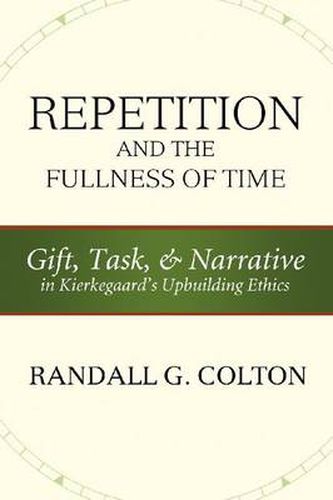Readings Newsletter
Become a Readings Member to make your shopping experience even easier.
Sign in or sign up for free!
You’re not far away from qualifying for FREE standard shipping within Australia
You’ve qualified for FREE standard shipping within Australia
The cart is loading…






In recent decades, many moral philosophers have begun to think more carefully about the significance of our inveterate story-telling habits for moral reflection. For some time those who promoted narrative’s central role for ethics on a variety of levels seemed to be commanding the field; but more recently sceptics of narrative’s relevance have begun to mount a vigorous resistance. Some of these struggles have played out on the terrain of Kierkegaard studies, and this book seeks to move the battle lines forward, both with respect to the significance of narrative more generally and to its place in Kierkegaard’s authorship.
Three theses about the presuppositions, ends, and limits of Kierkegaard’s use of narrative are at its heart. First, Kierkegaard’s account of the moral life in terms of gift and task, a structure that lends itself naturally to narrative display, provides a compelling rationale for the pervasive presence of narrative forms in his writings. Second, Kierkegaard chiefly intends his use of narrative as a pedagogical tool for building up his reader in virtues that are acquired in a narrative pattern he calls repetition, a pattern of loss and then recovery in a new key. Finally, despite the importance of narrative in Kierkegaard’s moral reflection, he does recognise its limits, though he does not find them in the same places as today’s narrative sceptics. Instead his arguments and writings entail that narratives, necessary for giving meaning to the passing moments of our lives, must also be contextualised in the moment of encounter with the eternal and divine, the moment that is the fullness of time.
Colton advances these theses through detailed readings of several Kierkegaardian texts as well as interactions with contemporary moral philosophers and narrative theorists, furthering both our understanding of Kierkegaard’s thought and the current debate on the significance of narrative for ethics.
$9.00 standard shipping within Australia
FREE standard shipping within Australia for orders over $100.00
Express & International shipping calculated at checkout
In recent decades, many moral philosophers have begun to think more carefully about the significance of our inveterate story-telling habits for moral reflection. For some time those who promoted narrative’s central role for ethics on a variety of levels seemed to be commanding the field; but more recently sceptics of narrative’s relevance have begun to mount a vigorous resistance. Some of these struggles have played out on the terrain of Kierkegaard studies, and this book seeks to move the battle lines forward, both with respect to the significance of narrative more generally and to its place in Kierkegaard’s authorship.
Three theses about the presuppositions, ends, and limits of Kierkegaard’s use of narrative are at its heart. First, Kierkegaard’s account of the moral life in terms of gift and task, a structure that lends itself naturally to narrative display, provides a compelling rationale for the pervasive presence of narrative forms in his writings. Second, Kierkegaard chiefly intends his use of narrative as a pedagogical tool for building up his reader in virtues that are acquired in a narrative pattern he calls repetition, a pattern of loss and then recovery in a new key. Finally, despite the importance of narrative in Kierkegaard’s moral reflection, he does recognise its limits, though he does not find them in the same places as today’s narrative sceptics. Instead his arguments and writings entail that narratives, necessary for giving meaning to the passing moments of our lives, must also be contextualised in the moment of encounter with the eternal and divine, the moment that is the fullness of time.
Colton advances these theses through detailed readings of several Kierkegaardian texts as well as interactions with contemporary moral philosophers and narrative theorists, furthering both our understanding of Kierkegaard’s thought and the current debate on the significance of narrative for ethics.